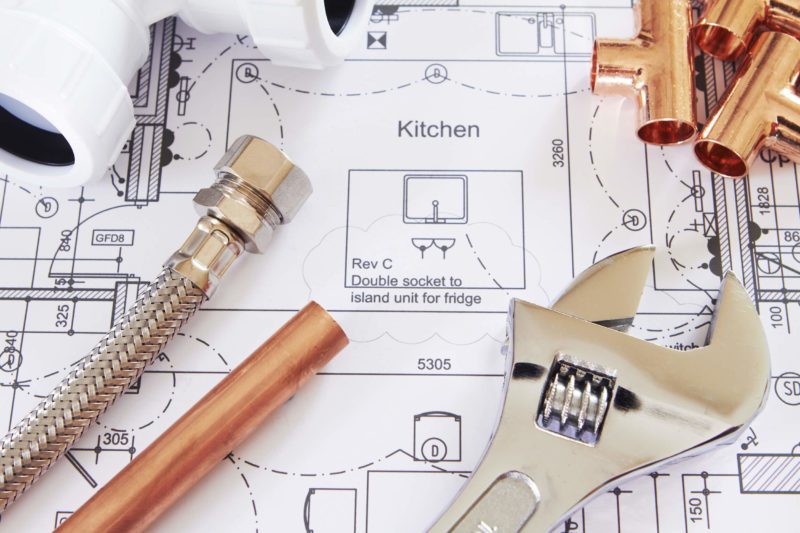Blog
When is it Time for New Plumbing Pipes?

Most plumbing repairs are isolated and do not indicate a need for new plumbing pipes. Or do they? If you’re a homeowner in Cincinnati or Northern Kentucky, how do you know when you need plumbing pipes?
In this blog, we’ll uncover common reasons and signs a house uses to tell you new plumbing pipes are in its future. We’ll also discuss why it’s important to be proactive to avoid major damage as well as solutions to save you time, money and hassles.
Most household plumbing is literally out of sight and as a result, out of mind. Unless a big plumbing leak, giant water bill spike or drain clog grabs attention, it’s easy to ignore. Keep in mind, as your house ages, so does your plumbing.
Roofing materials, HVAC equipment and plumbing, for example, have average lifetimes. At some point, houses need new plumbing types.
Replacing decaying water pipes isn't an inexpensive or easy task, but it can't compare to the stress and cost of repairing damage from a serious water leak.
It’s important to be vigilant, so regularly check the condition of exposed pipes in areas such as the basement, around the water heater, under the kitchen and bathroom sinks, and in the utility room.
Whether your house is new and still settling or you live in a historic home neighborhood like Northside, Clifton, Hyde Park, Columbia-Tusculum or Loveland, we recommend checking on your plumbing.
Reasons Homes Need New Plumbing Pipes
Age
Simply, plumbing pipes don’t last forever. Depending on the material used, the “hardness” of the water and the maintenance performed, some homes need new plumbing pipes earlier than others. Here are typical lifespans for plumbing pipes.
| Type of Plumbing Pipe | Material | Common Lifespan |
| Supply Pipes (most likely to cause water damage during a leak because they’re under constant pressure) | Brass | 80 - 100 years |
| Supply Pipes | Galvanized Steel | 80 - 100 years |
| Supply Pipes | Copper | 70 - 80 years |
| Supply Pipes | Cross-linked Polyethylene Tubing (PEX) | Newer product, undetermined lifespan, but comes with a 25-year warranty |
| Drain Lines | Cast Iron | 80 - 100 years |
| Drain Lines | Polyvinyl Chloride (PVC) | 25 - 40 years |
Tree Roots
The sewer line running beneath your front yard is a critical part of household plumbing. Sewer pipes in the past were frequently made of clay or cast iron. Both types are susceptible to gradual infiltration by tree roots.
Roots enter either through the crumbling pipe material or through joints and seams. Tree roots in plumbing pipes cause clogs and trigger damage from sewage backups. Sometimes the tree roots instead wind around the decaying or malleable pipe and squeeze it into collapse.
This is a real threat if you have older, mature trees on your property or those with shallow and pervasive root systems. One solution is to upgrade to seamless PVC piping. PVC is less vulnerable to tree roots and lasts for decades.
It’s also possible now to install new plumbing pipes without excavating your yard.
Older Plumbing Pipe Materials
If you have older pipes, look for dimpling, discoloration or flaking. These indicate decay and corrosion. If the pipes have any irregularities, it’s best to contact a licensed plumber and schedule a thorough evaluation.
Was your house built between the 1940s and the 1970s? Or, was there a side sewer to your house laid during that period? If so, there’s an excellent chance the plumbers used something called Orangeburg pipe.
Bituminous fiber pipe made from asphalt-impregnated pressed layers of wood pulp and pitch, Orangeburg pipe was a popular choice during WWII and beyond. Taxes increased on cast iron pipes and Orangeburg was a viable alternative.
It has an average life expectancy of around 50 years. Because it’s basically tar paper, it’s common to see it fail after only 30 years. It’s also a prime target for tree roots to infest and clog.
Deterioration usually happens quickly and creates a major sewer line problem. Pipe-relining is usually not recommended due to the number of complications.
If you want to “flip” or purchase a house from this period, we strongly suggest you call for a plumbing and sewer inspection from Apollo Home prior to the sale.
It’s best to remove certain plumbing pipes, regardless of their age: lead and polybutylene.
Lead pipes, used in the early 1900s, last for 100 years. Sadly, like Flint, Michigan residents experienced, lead leaches into drinking water long before anyone realizes it.
Polybutylene pipes, popular during the 1970s to 1990s, are now known to break easily. Avoid a crisis with these piping materials and replace with new plumbing pipes.
Plumbing Leaks
Tiny pinhole leaks in water supply lines are often only the external evidence of severe internal pipe corrosion. Such internal damage is a ticking bomb. Total pipe rupture could happen at any time and cause extensive water damage to your home.
Same is true for seepage around pipe joints and other components in the plumbing system. If your home has galvanized steel water supply lines, commonly installed as late as the 1970s, make a plumbing upgrade including repiping with copper or PVC a priority.
Low Water Pressure
Sometimes a gradual and unexplained decline of indoor water pressure is the result of mineral deposit accumulation inside water supply lines. Most regions of the U.S. have “hard” municipal water, especially if it comes from a ground source.
According to the City of Cincinnati, minerals such as calcium and magnesium salts are responsible for water “hardness.” Groundwater contains more of these minerals because they’re present in the rocks and aquifer.
Bolton Plant water has an average hardness of 147 milligrams per liter whereas Miller Plant water has an average of 137 milligrams per liter. Between 120 and 180 milligrams per liter is considered “hard” while anything over 180 milligrams per liter is considered “very hard.”
Hardness does not affect the safety of water but affects cleanser effectiveness, for example. Soft water is preferred for bathing, washing clothes, dishes and to reduce wear and tear on appliances. Interested in a water softener? Apollo Home plumbers install these too.
Minerals like calcium carbonate gradually accrete inside pipes like plaque in an artery, narrowing them until water pressure is noticeably reduced. Re-piping water supply lines is the only remedy to restore normal water pressure.
Discolored Water
Discolored water. Water that appears rusty or brown often indicates corrosion and/or accumulation of mineral deposits in pipes. Most homeowners notice this after being gone after a few days or in a rarely-used guest bathroom, for example.
Generally, this is a system-wide problem rarely limited to one individual water line in the house. Therefore, replacement of supply pipes is the only way to clear up the water supply and get sparkling clear water again.
Sound familiar? Book Plumbing Services Now
Pex Tubing - A New Generation of Plumbing Pipes
The best time for new plumbing pipes is to prevent a problem. If you’re performing renovations, for example, and wall cavities are exposed, take the opportunity to replace pipes as necessary.
If you need new plumbing pipes without home renovations, PEX tubing is a great solution. Your plumber can snake the PEX tubing and replace inside-the-wall supply lines similar to how electricians feed wiring behind walls with minimal disruption.
PEX meets building codes everywhere and costs less than copper, due to material and fewer labor hours. Because PEX is still a relatively new plumbing pipes product, its true lifespan is unknown.
In addition, some environmental groups have raised questions about the unknown risks of plastic water supply lines. Discuss your specific situation and concerns with your Apollo plumber to make the right choice for your budget and for you.
Prevent Major Plumbing Problems with the Apollo Care Plan
Apollo Care Plan members in Cincinnati and Northern Kentucky, know the Apollo Care Plan is a great investment. It covers seasonal tune ups of your heating and cooling equipment as well as yearly evaluations of your plumbing and electrical systems.
These annual evaluations provide a great opportunity to ask questions and to verify home mechanicals and systems are in good shape. Additional plan benefits include discounts and priority scheduling with a VIP phone number.
In Conclusion: Pay Attention to Signs You Need New Plumbing Pipes
Serving Cincinnati since 1910, Apollo Home has received awards such as “Best in Cincinnati” for Home Services, Angie’s List Super Service Award, Contractors of the Year from the Air Conditioning Contractors of America and an A+ Accredited Business rating from the Better Business Bureau.
Apollo Home plumbers, electricians and HVAC technicians serve communities throughout Cincinnati, including Delhi, Dry Run, Forestville, Indian Hill and Bridgetown. Apollo Home also serves cities in Northern Kentucky, including Newport, Park Hills, Crestview Hills and Lakeside Park.



